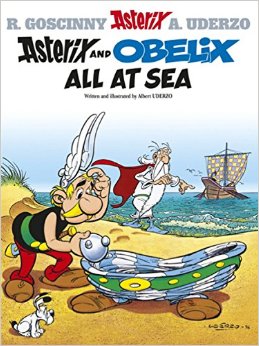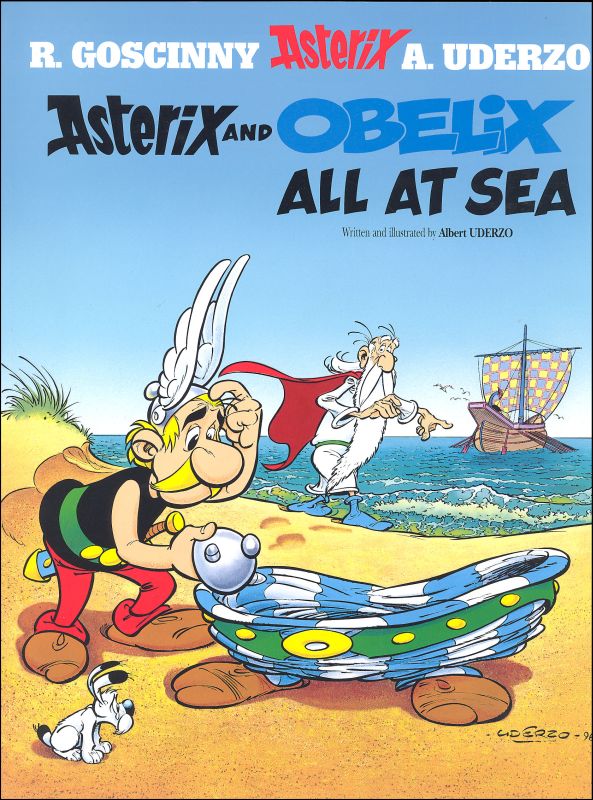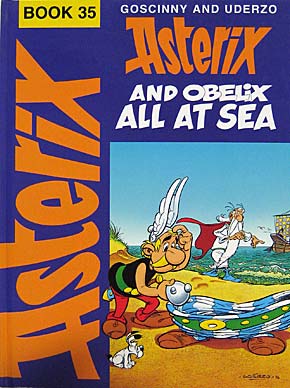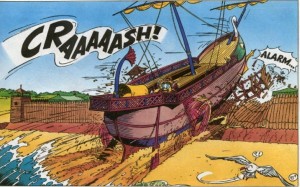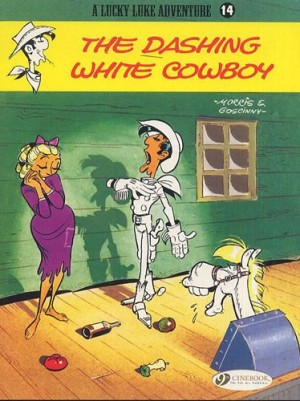Review by Frank Plowright
Artist Albert Uderzo’s first solo efforts on Asterix weren’t bad, but they came nowhere near to matching the tight plotting and inventiveness of co-creator René Goscinny. Asterix and Obelix All At Sea is his best solo work, suffering only from an attempt to pack too many plots into the story. Otherwise Uderzo provides a constant stream of well-conceived gags and puns, introduces a novel new idea, and his artwork is as excellent as ever.
Uderzo begins by exploring a plot element dating back to the earliest Asterix books. Obelix hasn’t been permitted any magic potion since being immersed in it as a baby. The consequences have always been deemed dangerous, but never explained. Until now. Simultaneously Julius Caesar is in the embarrassing position of having had his personal galley hijacked by slaves who’re now making for the Gaulish village. The change in Obelix makes him easy pickings for the Roman troops, and an ambitious officer plans to ship him back to Rome as a hostage.
There’s a large part for the pirates this time, an amusing caricature of Kirk Douglas as leader of the escaped slaves, and the Asterix version of Caesar is also welcome. There’s also a cameo for Cleopatra, oddly drawn at great variance from the way in which Uderzo previously depicted her. Much then was made of her nose, so that’s a jarring discrepancy. One also has to look at the very fine print in the indicia page to discover that Uderzo only pencilled the story, and inks were provided by Frédéric Mébarki and colours by Thierry Mébarki.
All in all a very readable book, with the only jarring oddity a detour to Atlantis. Uderzo includes a homage to Fantasia, but given the scope of the idea and the scant treatment it receives over a mere four pages, it might have better served as the basis for another story.
